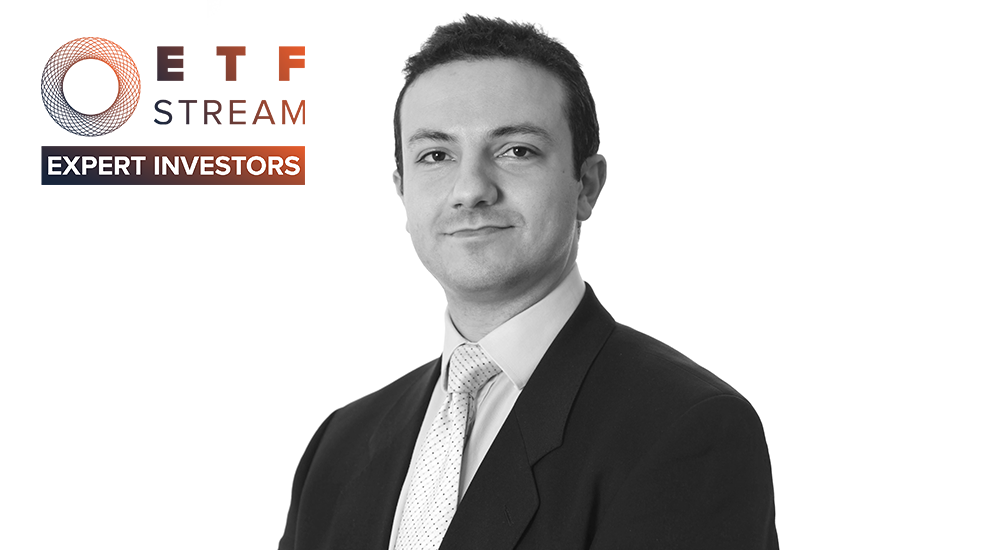Next in the hot seat for ETF Stream's Expert Investors series, where we interview fund buyers about their ETF usage on a fortnightly basis, is Evangelos Assimakos, investment director at Rathbone Investment Management.
Based in Edinburgh, Assimakos joined Rathbones in March 2012 as an investment manager before being promoted to investment director in December 2016.
How much of your portfolio is made-up of ETFs/index funds?
Exposure to ETFs and index funds for most of our clients’ portfolios tend to be in the 5-15% region, although in some cases, this can be higher. Overall, the majority of our exposure is in actively-managed holdings and direct stocks.
When did you start investing in ETFs? Why then?
I started investing in ETFs at the beginning of my investment career, about 13 years ago. ETFs offer a cheap and efficient means of exposure to a wide variety of asset classes and, in some cases, are the only way to gain access to a particular asset class for retail clients.
Which asset classes do you tend to invest in through ETFs?
The most common asset class to invest through exchange-traded products is gold bullion; for retail investors, this is the only way to get exposure to the metal itself (as opposed to the gold mine) in a portfolio context.
We also use index funds and ETFs to gain exposure to certain themes like cloud computing, robotics and automation and other up-and-coming areas where we wish to cast a wide net across a sector. Occasionally, we invest in ETFs that offer exposure to a given geography but have a particular factor characteristic; low volatility, high and reliable dividends etc.
Which areas would you avoid?
We avoid ETFs and index funds when investing in fixed income markets and in particular, corporate bonds or emerging market bonds. Having a market-cap weighted approach with issuers of debt often skews your exposure to the most heavily indebted corporations or countries.
Given the asymmetry of risk and return when it comes to bonds (i.e. if you’re right, your upside is the income from the bond whereas if you’re wrong, you could lose the entire capital in a default situation), it pays to have an active manager conduct the rigorous credit analysis for your exposure.
What is your methodology for selecting ETFs?
Cost is an important consideration but not the only one; the financial strength of the counterparty is crucial and the ability to offer a smooth market on their products with tight bid/offer spreads is also very important.
You have to do your homework on the counterparty; if it’s a physical replication product, do they lend stock? If it’s a swap-based product, who is the swap counterparty. In either case, you have to consider and understand what happens to the collateral and the type of collateral used.
Although we are not dogmatic in picking physical replication over swap-based products, we look for good quality collateral in all cases and counterparties of the strongest financial standing.
Do you have an ETF provider preference?
We do not have favoured ETF providers but use the majority of the large players in the market, depending on the individual product in question and other considerations.
What ETF products would you like to see more of?
Arguably commodities (including gold and precious metals) has been an area with only a handful of players so far, limiting choice and competition. It is encouraging to note that this is recently being addressed, with more providers launching products and with prices coming down as well.
Gold price surpasses $2,000 for first time
Areas ETF providers could improve?
ETF providers already offer a great level of transparency and information on their underlying holdings and collateral but there is always room for improvement. Also, a responsive team of product specialists is a plus, on hand to promptly answer questions that sometimes arise.
Expert Investors
Expert investors is a series brought to you by ETF Stream where on a fortnightly basis we interview the key individuals from across the fund selection and research space about the ETF ecosystem.
Fund selection plays a crucial role in portfolio construction. Once the asset allocation decision has been made, these individuals need to decide how they want to be exposed, be it through a mutual fund, investment trust or ETF.
Over the years, ETFs have become an increasingly important part of any investor’s toolkit. This series will show how the key players across the fund selection space use ETFs in their portfolios while asking what more can be done by the ETF providers to help with this increasing adoption.
To read the previous edition of Expert Investors with Barnaby Barker, investment analyst at SCM Direct, click here.



